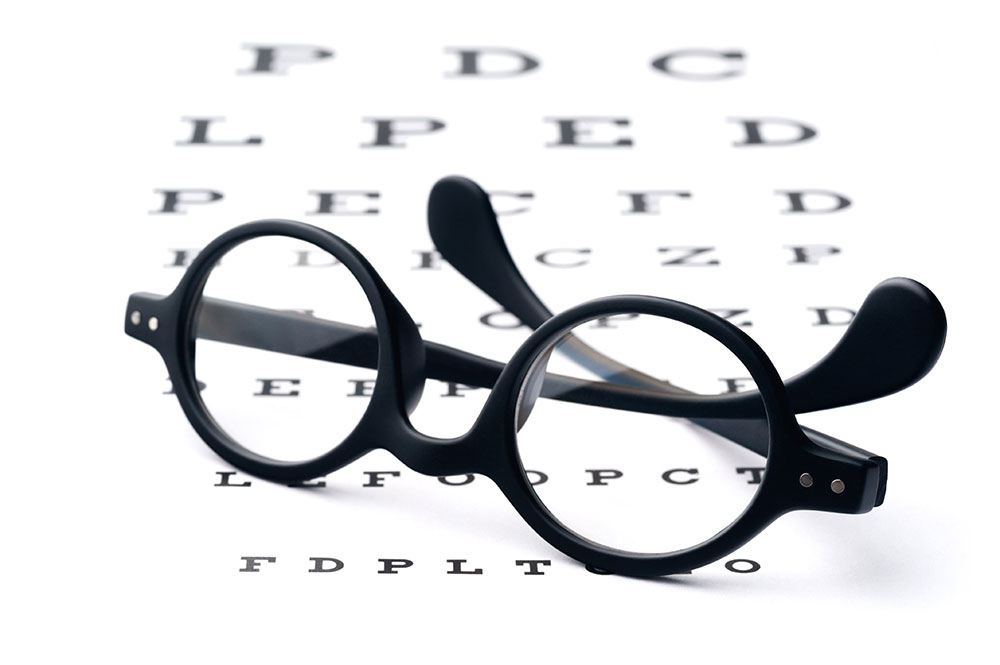Do I Need an Optometrist or an Ophthalmologist?

Every year, For Eyes sees thousands of patients at our optical centers around the country. From performing comprehensive eye exams to prescribing glasses, our expertise is in creating a friendly, open environment for our patients and educating them about the proper ways to care for their eyes.
We always welcome you to ask questions during and after your exam so that you feel like you have the knowledge and tools you need to manage your vision. One of our most frequently asked questions is: ‘Do I need an optometrist or an ophthalmologist?’ In general, an optometrist has the expertise to assist you with most eye care concerns, but depending on your symptoms, you may require an ophthalmologist.
Do I need an optometrist or an ophthalmologist?
To better understand what situations mandate each of the two eye care professionals, it’s best to inform yourself on what each profession is qualified to do. With a doctor of optometry (O.D.) degree, an optometrist is an independent doctor who works in the eye health field. An ophthalmologist holds a medical doctor (M.D.) degree and practices with a specialty in eyes.
Both professions are integral to eye care but play different roles based on the specialties needed. To see whether you need an optometrist or an ophthalmologist, ask yourself these questions.
Disclaimer: The education and functions required of optometrists and ophthalmologists may vary by state.
Do you have a mild or severe eye health concern?
Most of us experience symptoms of computer vision syndrome by spending extended periods in front of screens. Some of these symptoms include blurriness, digital eye strain, headaches, and squinting. If you have any of these common eye concerns or another vision concern, such as dry eye, start with an optometrist.
An ophthalmologist is qualified to help you with mild eye health concerns and, like an optometrist, can even prescribe you corrective glasses or contact lenses. However, ophthalmologists work with more severe eye health concerns, such as eye pain and nausea, which could be signs of glaucoma.
Other pressing eye concerns, which require an ophthalmologist, include eye injuries, high blood pressure, peripheral vision loss, and red eyes. If anyone in your family has an eye disease, an ophthalmologist is the better option, as you may be pre-exposed to this condition.
If you’re wondering, ‘Do I need an optometrist or an ophthalmologist?’, know that an ophthalmologist can treat severe symptoms caused to your eyes by your health condition. They can also refer you to a specialist for continued treatment.
Bottom Line: Go to an optometrist for mild eye health concerns. An ophthalmologist can help with severe eye conditions.
Do you think you might need vision therapy?
Another question to ask when wondering, ‘Do I need an optometrist or an ophthalmologist?’, is whether you have any eye coordination problems that may require the use of vision therapy. In vision therapy, the eye care professional guides you through a variety of visual challenges to help you with crossed eyes, double vision, and lazy eye, among other conditions.
Vision therapy is personalized for each patient to address their eye concerns. The eye care professional focuses on helping you meet your vision objectives, alleviate visual discomfort, and modify how you interpret visuals. Both optometrists and ophthalmologists can assist with vision therapy.

Bottom Line: Visit an optometrist or ophthalmologist for vision therapy. Both professions can help you.
Do you think eye surgery will be required?
Without knowing the exact eye condition, it’s challenging to say whether eye surgery will be required. However, if your symptoms are strong enough, you may need to see an ophthalmologist, who can recommend surgery as an option.
One of the reasons you may need surgery is if you have cataracts. As a medical doctor, an ophthalmologist can legally diagnose you with cataracts and other eye conditions, and perform the necessary operations. Another surgery they can do is LASIK.
An optometrist is not able to perform any surgeries, but they may assist you before or after the procedure under the guidance of an ophthalmologist. They can also provide eye care and professional vision advice outside of and after the surgery.
Bottom Line: Check out an ophthalmologist for eye surgery. An optometrist may help by preparing you for or caring for you after the procedure.
Will you need medication for your eyes?
If you need eye drops or other medication for a fundamental eye health concern, such as dry eye, an optometrist can assist you. However, if you need prescription medicine for a severe eye health concern, such as glaucoma, you’ll need to consult an ophthalmologist.
Depending on the pharmaceutical grade of the medication, an optometrist may refer you to an ophthalmologist. Optometrists are not able to prescribe medication for life-threatening eye health conditions, but they can help you understand your options and point you in the right direction.
Bottom Line: Turn to an optometrist or ophthalmologist for generic medication for your eyes. An ophthalmologist can prescribe higher-grade medications.
Summary: Do I need an optometrist or an ophthalmologist?
An optometrist can solve most of your eye health concerns, but in some cases, you’ll need the expertise of an ophthalmologist. By identifying your reason for needing to schedule an eye appointment, you can ensure you go to the right eye care professional.
Here are some pointers:
- Go to an ophthalmologist for severe eye health concerns, including glaucoma. An optometrist can assist with any general or mild issues.
- Visit an optometrist or ophthalmologist if you need vision therapy for eye coordination issues.
- An optometrist can help prepare you for eye surgery, but you’ll need an ophthalmologist to perform the operation.
- Optometrists and ophthalmologists can prescribe you generic medication. Higher-grade medications must be approved and prescribed by an ophthalmologist.
If you’re ever still wondering, ‘Do I need an optometrist or an ophthalmologist?’, keep this quick guide handy. It may not answer your eye health concerns, but a quick visit to the eye doctor sure will.
Book your eye exam at For Eyes
Have you had your annual comprehensive eye exam? Schedule an appointment with an Independent Doctor of Optometry at your local For Eyes.







